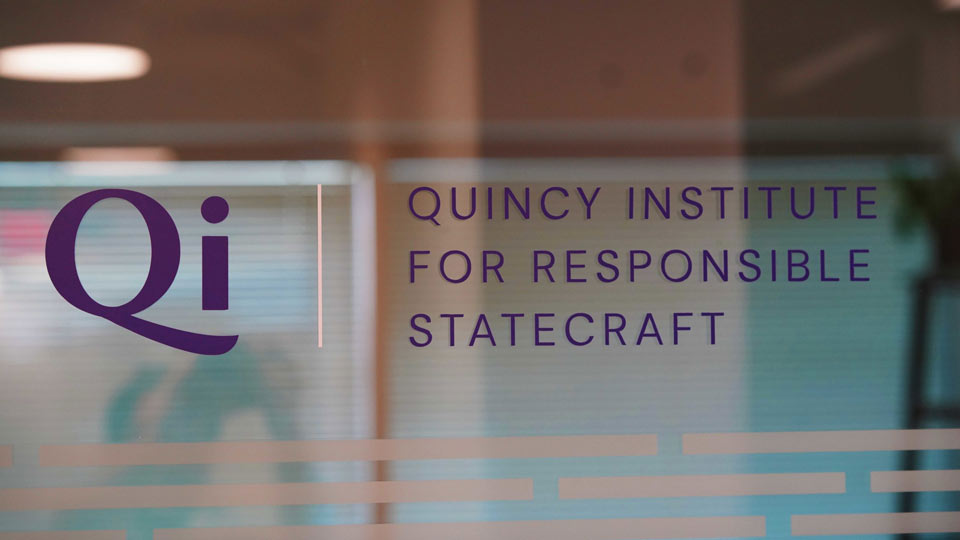
The Biden administration and other Western governments and institutions have not even waited for detailed reports from their own observers to call the election results into question,” notes the article about Georgia published by the Quincy Institute, a Washington-based research organization.
The author of the article, the Director of the Eurasia Program at the Quincy Institute for Responsible Statecraft, Anatol Lieven, said that “The Biden administration and other Western governments and institutions have not even waited for detailed reports from their own observers to call the election results into question. Moreover, it must be stated with regret that many of these observers can hardly be called objective.
President Biden, absurdly, cited international and local observers’ assessments that elections in Georgia were not free, nor fair; absurdly, because the local observers are overwhelmingly from NGOs closely linked to the Georgian opposition. As to monitors from the West, in many cases their parent institutions have spent months denouncing the Georgian government as undemocratic and under Moscow’s sway.”
The article mentions that Quincy Institute talked about the possible results of the parliamentary elections held in Georgia and the expected development scenario long before. The author says that he wrote for RS back in July: “Parliamentary elections are due in Georgia on October 26, and the universal opinion among Georgians with whom I have spoken is that if the government wins, the opposition, backed by pro-Western NGOs, will allege that the results were falsified, and will launch a mass protest movement in an effort to topple the Georgian Dream government. Judging by recent statements, most Western establishments will automatically take the side of the opposition. This narrative is already well underway, with lines like ‘Government vs. the People in Georgia’ and ‘a crisis that has pitted the government against its people.’ This suggests that Georgia is a dictatorship in which ‘the people’ have no say except through street protests.”
The Anatol Lieven noted that President Salome Zourabichvili described the elections as a “Russian special operation.” “However, when asked by Western journalists to substantiate this, she could only say that the government had used “Russian methodology,” he remarked.
The article notes that “The most reliable monitoring historically has come from the OSCE’s Office for Democratic Institutions and Human Rights (ODIHR). Its preliminary comments on the elections: “Imbalances in financial resources, a divisive campaign atmosphere, and recent legislative amendments were of significant concern throughout this election process… Yet the engagement shown on election day—from the active voter participation, robust presence of citizen and party observers, and rich diversity of voices—gives the sign of a system that is still growing and evolving, with a democratic vitality under construction.”
It continues: “Though far from a ringing endorsement, this does not allege that the elections were rigged. Moreover, the government’s use of its financial and administrative resources to tilt the result have been true of every Georgian election since independence (as well as some in the West). As to the “divisive campaign atmosphere,” responsibility for this is obviously shared between government and opposition. The Georgian Election Commission has called a recount in a small number of constituencies, which should be closely and independently observed.
All Western institutions and commentators should therefore wait for the final OSCE/ODIHR report before drawing firm conclusions. However, two early assessments seem plausible: First, that there were most probably a good many cases where the government bought votes, intimidated voters, and engaged in other acts of electoral manipulation. Second, however, to legitimately endorse the reversal of a 53% to 38% government victory will require proof of rigging on a very large scale. Maybe that can indeed be provided. Let us wait and see.
Aspects of the Western response have troubling implications that extend far beyond Georgia. Much media “reporting” from Georgia has been closer to opinion articles based on interviews with the Georgian opposition. Interviews with voters who favor the government, with explanations of their reasons for doing so, have been rare indeed. Many Western journalists also seem to feel — if only unconsciously — that the only Georgians (and others in the world) who truly deserve a voice are those who identify with the West and the opinions of the journalists asking the questions.”





